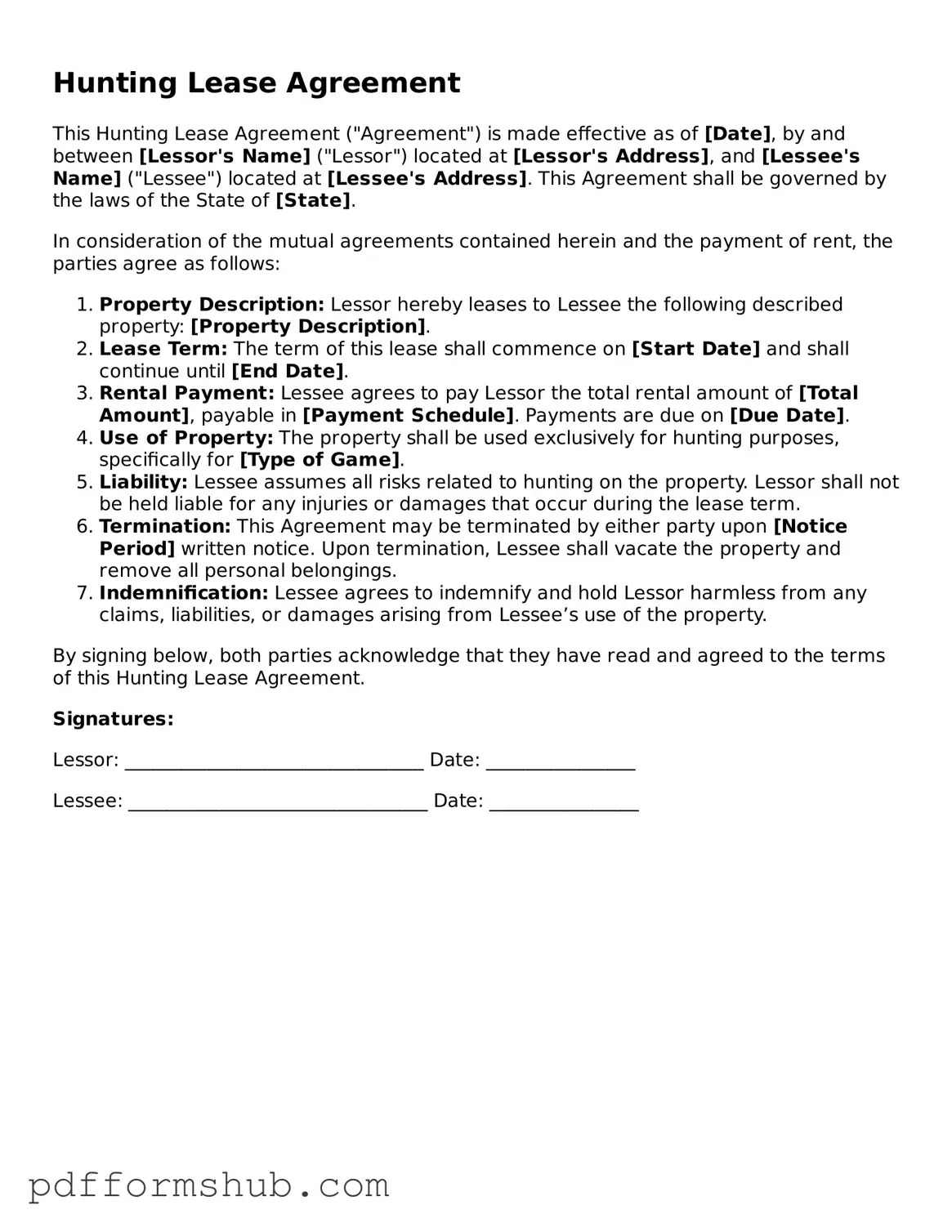Valid Hunting Lease Agreement Form
A Hunting Lease Agreement is a legal document that outlines the terms and conditions under which one party grants another the right to hunt on their property. This agreement protects the interests of both landowners and hunters, ensuring that everyone understands their rights and responsibilities. To get started, fill out the form by clicking the button below.
Customize Form

Valid Hunting Lease Agreement Form
Customize Form

Customize Form
or
Free PDF Form
Short deadline? Complete this form now
Complete Hunting Lease Agreement online without printing hassles.